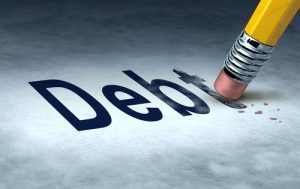Debt Discharge
Do all debts get discharged?
Maybe. It depends on the types of debts you have. First, a bankruptcy case only discharges debts that you owed and listed at the time you filed the case, not those you incurred after filing the case.
In addition, even after bankruptcy, you will have to pay debts that are not discharged. Non-dischargeable debts include:
- debts for income and property taxes
- debts to creditors you did not list in your bankruptcy paperwork
- domestic support obligations such as alimony and child support debts
- fines payable to any governmental unit, such as a city or state
- restitution imposed on you as part of a criminal sentence
- student loans
Other debts that may not be discharged include debts you may have incurred through fraud or by willful or malicious actions. An example of a debt incurred by fraud is a loan you obtained when you knew you could not repay. Some credit card use immediately (within 70 days) before bankruptcy may be considered fraudulent, especially if you use the card to pay for “luxury” goods or services, such as a vacation. However, if the creditor does not ask the court to rule on these debts, they will be discharged.
Get free consultation from Hedtke Law Firm for your debt discharge.
